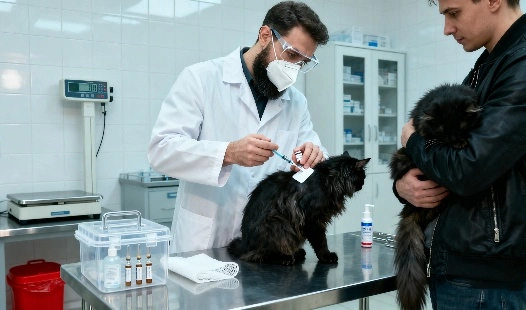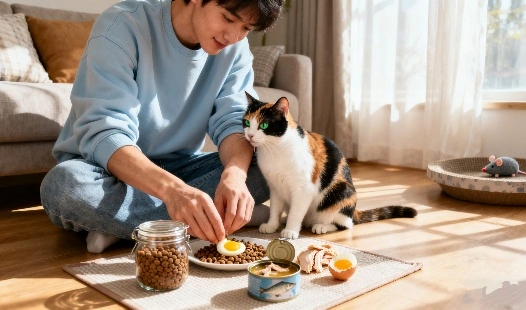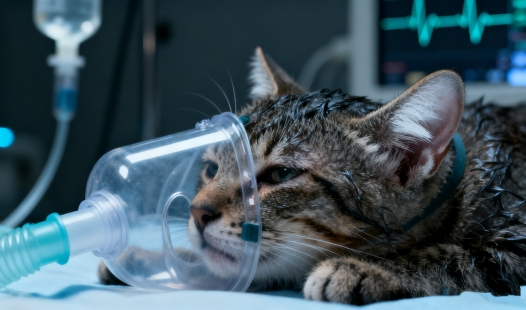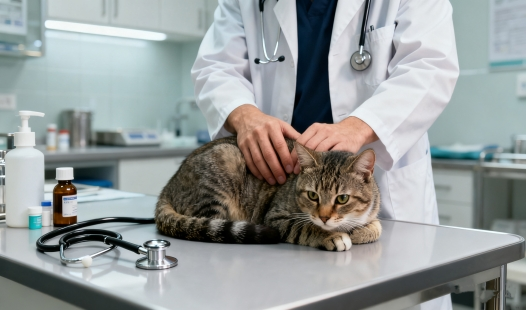While not replacements for veterinary care, some complementary therapies may offer additional support for cats undergoing FIP treatment.
Home Remedies for Cats with FIPV: Do They Work?
Nutritional Support: Boosting Immunity Naturally
Feline infectious peritonitis (FIP) is a terrible and often fatal illness that impacts felines all over the globe, causing significant concern among cat owners and veterinarians alike. Despite the tremendous advancements made in modern veterinary science and the availability of effective GS-441524 FIP treatment, many cat owners continue to explore possible home-based remedies as complementary approaches to improve their pets' quality of life. These natural interventions are not meant to replace professional medical care but can sometimes offer additional support, helping to strengthen the immune system, reduce inflammation, or alleviate discomfort. This all-inclusive guide will thoroughly examine various natural ways to help cats with FIP, carefully analysing their effectiveness, safety, and potential role alongside conventional treatments.
|
|
|
Nutritional Support: Boosting Immunity Naturally
Proper nutrition plays a crucial role in maintaining a cat's overall health and immune function. For cats battling FIP, a balanced diet rich in essential nutrients can potentially aid in their recovery process.
Immune-Boosting Foods
Incorporating certain foods into your cat's diet may help strengthen their immune system:
- Omega-3 fatty acids: Found in fish oil, these can help reduce inflammation.
- Antioxidants: Vegetables like pumpkin and sweet potato are rich in antioxidants that support immune function.
- Probiotics: These beneficial bacteria can improve gut health and overall immunity.
Herbal Supplements
Some cat owners have reported positive results with certain herbal supplements:
- Black Elderberry Extract Powder: Known for its antiviral properties, it may help support the immune system.
- Echinacea: This herb is believed to stimulate the immune system.
- Astragalus: Traditional Chinese medicine uses this herb to boost immunity and reduce inflammation.
While these supplements show promise, it's crucial to consult with a veterinarian before adding them to your cat's regimen, as they may interact with other FIP treatment methods or have unintended effects.
Stress Reduction Techniques: Aiding Recovery
Stress can significantly impact a cat's ability to fight disease. Implementing stress-reduction strategies can create a more supportive environment for cats with FIP.
Creating a Calm Environment
Consider the following techniques to reduce stress in your cat's living space:
- Provide quiet, comfortable resting areas
- Maintain a consistent daily routine
- Use pheromone diffusers to promote relaxation
- Minimize exposure to loud noises or sudden changes
Gentle Interaction and Bonding
Positive interactions with your cat can help reduce stress and improve their overall well-being:
- Engage in gentle play sessions
- Offer soothing brushing or grooming
- Provide comforting physical contact, such as petting or lap time
 |
 |
 |
Complementary Therapies: Evidence-Based Approaches
Acupuncture and Acupressure
Traditional Chinese medicine techniques like acupuncture and acupressure may help:
- Alleviate pain and discomfort: Acupuncture and acupressure can help reduce pain by stimulating specific points along the body’s meridians. This may provide relief from inflammation, soreness, or discomfort associated with illness or injury.
- Improve circulation: These traditional Chinese medicine techniques can enhance blood and lymphatic flow, promoting better nutrient delivery and waste removal. Improved circulation may support healing, reduce swelling, and strengthen overall organ function.
- Boost overall energy levels: By balancing the body's energy, or Qi, acupuncture and acupressure can help restore vitality and reduce fatigue. This may result in increased activity, alertness, and general well-being for the treated animal.
Always seek a certified veterinary acupuncturist for these treatments.
Massage Therapy
Gentle massage can provide several benefits:
- Promotes relaxation and reduces stress
- Improves circulation
- Helps maintain muscle tone in less active cats
Learn proper techniques from a veterinary professional to ensure safe and effective massage.
Herbal Remedies
Some herbs have shown potential in supporting cats with various health issues:
- Coconut protein powder: Rich in medium-chain triglycerides, it may provide energy and support immune function.
- Milk thistle: Known for its liver-protective properties, it may help support organ function.
- Ginger: Can aid in digestion and reduce nausea, which may be beneficial for cats experiencing gastrointestinal symptoms.
As with any supplement, consult your veterinarian before administering herbal remedies to ensure safety and appropriate dosing.
Conclusion
While home remedies and complementary therapies may offer some supportive benefits for cats with FIP, it is crucial to emphasize that they should never replace professional veterinary care. These natural or alternative approaches might help improve a cat's overall well-being, boost immune function, or provide relief from certain symptoms, but they cannot address the underlying viral cause of the disease. The most effective FIP treatment currently available involves the use of targeted antiviral medications, particularly GS-441524, which has demonstrated highly promising results in numerous clinical trials. Working closely with a veterinarian ensures the safest, most effective combination of medical care and supportive strategies.
Always consult with your veterinarian before implementing any home remedies or complementary therapies. They can provide guidance on safe and effective options that may work alongside conventional treatments. Remember, early diagnosis and proper medical care are key factors in improving outcomes for cats with FIP.
 |
 |
FAQ
1. Can home remedies cure FIP in cats?
Home remedies alone cannot cure FIP. While some may provide supportive care and potentially improve quality of life, the most effective treatment for FIP involves antiviral medications prescribed by a veterinarian.
2. Is GS-441524 a home remedy for FIP?
No, GS-441524 is not a home remedy. It's a pharmaceutical antiviral compound that has shown significant promise in treating FIP. It should only be administered under veterinary supervision.
3. Are there any natural supplements that can help cats with FIP?
While some natural supplements like omega-3 fatty acids or probiotics may support overall health, there's no scientific evidence that they can treat or cure FIP. Always consult with your veterinarian before giving any supplements to your cat.
Empower Your Cat's Health with BLOOM TECH's Premium GS-441524
When it concerns your cat's well-being, we at BLOOM TECH know how important it is to use high-quality products. Strict adherence to GMP standards throughout manufacturing guarantees the utmost purity and effectiveness of our pharmaceutical-grade GS-441524. Supporting veterinarians and cat owners in the battle against FIP is our commitment, and we aim to do so via our dependable supply chain and low price. Choose BLOOM TECH's dependable, high-quality GS-441524 for your cat's therapy instead of settling.
For inquiries about our GS-441524 products or to place an order, please contact our dedicated sales team at Sales@bloomtechz.com. As a leading GS-441524 manufacturer, we're here to answer your questions and provide the support you need.
References
1. Pedersen, N. C. (2019). Feline infectious peritonitis: A review of current therapies and challenges. Veterinary Sciences, 6(4), 99.
2. Murphy, B. G., et al. (2018). The nucleoside analog GS-441524 strongly inhibits feline infectious peritonitis (FIP) virus in tissue culture and experimental cat infection studies. Veterinary Microbiology, 219, 226-233.
3. Addie, D. D. (2020). Feline coronavirus and feline infectious peritonitis: A review. Journal of Feline Medicine and Surgery, 22(6), 501-512.
4. Kim, Y., et al. (2020). Antiviral treatment using the adenosine nucleoside analogue GS-441524 in cats with clinically diagnosed neurological feline infectious peritonitis. Journal of Feline Medicine and Surgery, 22(8), 729-737.

Echo
9 years of experience in chemical articles; Doctoral degree; Organic Chemistry major; R&D-4 Dept; Technology support; R&D engineer
Anticipating your Business & Technology support inquiry
Please send us the products that interest you, and we will provide you with one-on-one service
Recommended Blog
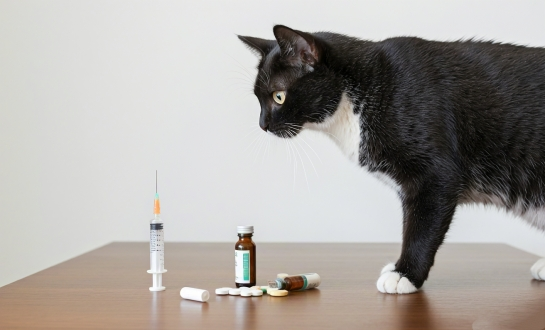
GS-441524 Injections vs. Tablets: Which is More Cost-Effective?
_副本_1758851753248.webp)
Common Misconceptions about FIP Treatment: Are You Avoiding Them
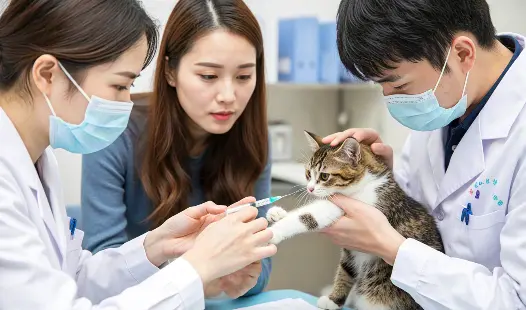
GS-441524 Injection Site Issues: What to Do About Redness and Lumps?
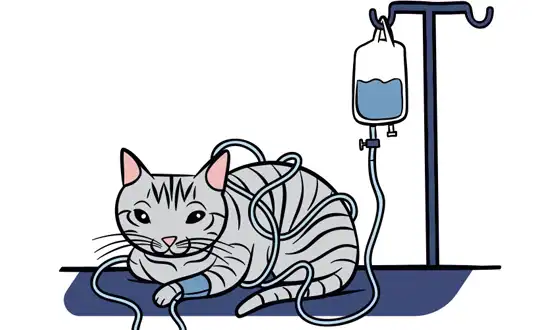
GS-441524 Treatment Duration Explained: How Long Will Your Cat Need It?
_副本_1757905577235.webp)
The Molecular Mechanism of GS-441524: How It Fights Coronavirus




